In the ever-evolving landscape of the internet, purchasing a domain name is a pivotal first step for anyone looking to establish a digital presence. Whether for a business, personal brand, or specific project, the domain you choose can significantly impact your online success. With this in mind, it’s crucial to enter the domain buying process armed with key knowledge to make informed decisions. This article delves into five vital considerations every domain buyer should be aware of, ensuring you navigate this complex terrain with confidence.
1. The Importance of a Domain Name’s History
A domain’s past can influence its future. Before committing to a purchase, investigate the domain’s history, including previous ownership and how it was used. A domain associated with spam or malicious activities can harm your brand’s reputation and SEO. Utilize tools like WHOIS databases and the Wayback Machine to uncover a domain’s background, ensuring you start on the right foot.
2. Understanding Domain Extensions
Domain extensions, or Top-Level Domains (TLDs), play a critical role in defining your domain’s identity and reach. With a myriad of options available, from traditional .com and .net to country-specific ccTLDs and niche gTLDs like .tech or .art, choosing the right extension can enhance brand recognition and target the appropriate audience. Consider your domain’s purpose and potential growth when selecting an extension to align with your long-term goals.
3. The Value of Domain Privacy Protection
Privacy protection shields your personal information from being publicly accessible in the WHOIS database, safeguarding you against spam, scams, and identity theft. Many registrars offer privacy protection services, sometimes at an additional cost. Investing in privacy protection is a wise decision for maintaining your online security and peace of mind.
4. Renewal Terms and Policies
Understanding the terms and policies related to domain renewal is essential to avoid unexpected expiration and potential loss of your domain. Familiarize yourself with the registrar’s renewal notifications, auto-renewal options, and the grace period after expiration. Proactive management of renewal terms ensures uninterrupted ownership and operation of your domain.
5. Understanding Aftermarket or Premium Domains
Aftermarket or premium domains are previously owned domains that are now available for sale, often due to their short, memorable names or keyword relevance. These domains can carry significant value, offering instant brand recognition and SEO advantages. While the initial investment may be higher, the long-term benefits to your online presence can justify the cost. Understanding the market value and potential of these domains can guide your investment decision.
6. The Potential for Negotiation
The domain market is dynamic, and prices can often be negotiated, especially for premium or aftermarket domains. Armed with research and understanding of the domain’s value, you can enter negotiations with a strategy to secure a fair price. Building a rapport with the seller and being willing to walk away can also strengthen your negotiating position.
Conclusion
Purchasing a domain name is a significant step in carving out your niche on the internet. By considering the domain’s history, understanding the implications of different extensions, valuing privacy protection, staying vigilant about renewal policies, recognizing the worth of aftermarket domains, and harnessing the power of negotiation, you can make informed choices that pave the way for online success. Equipped with these insights, you’re now ready to navigate the domain buying process with confidence and clarity.

